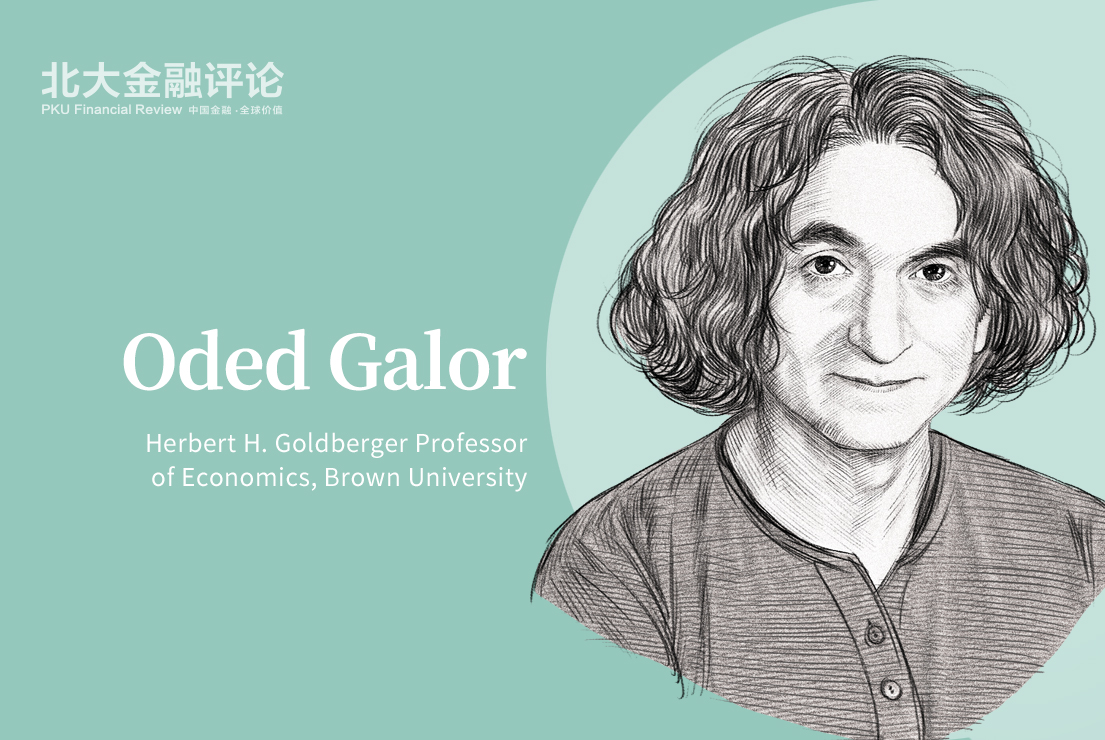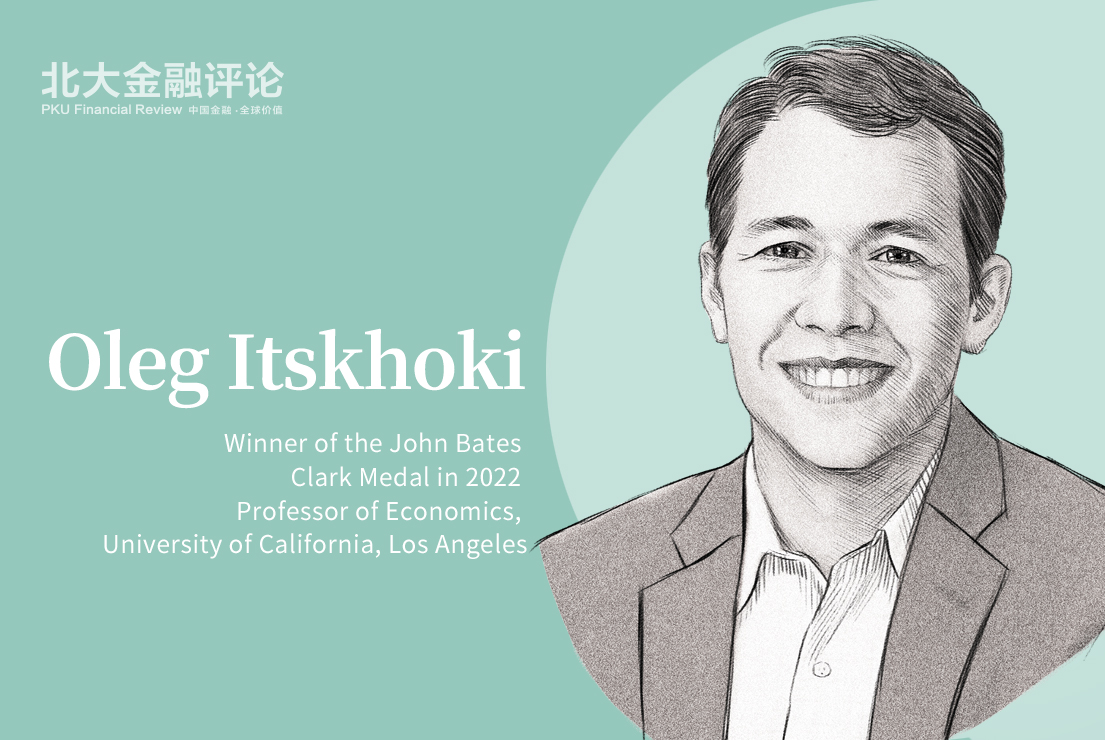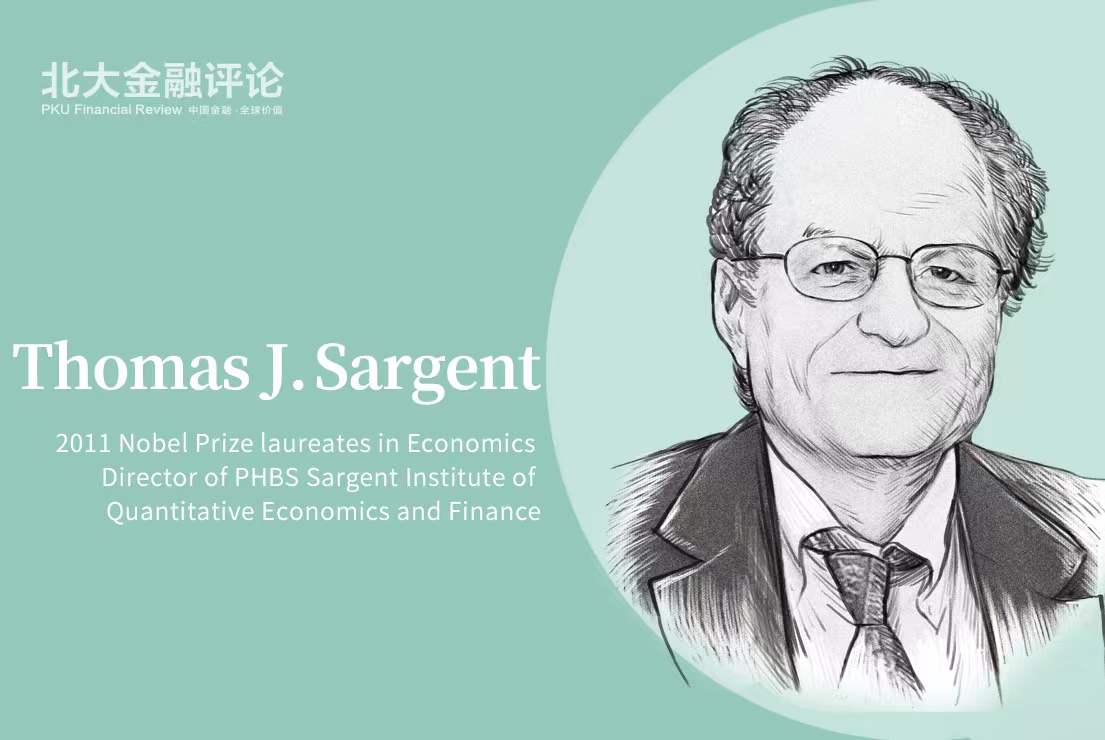As one of the most creative economists in the world, Oded Galor, the founder of unified growth theory, is considered as a potential candidate for the Nobel Prize in Economics. In his book The Journey of Humanity: The Origins of Wealth and Inequality, Galor answers all core questions about human growth and human fertility.
In the interview with PKU Financial Review, Oded Galor, Herbert H. Goldberger Professor of Economics at Brown University, states that, societal diversity generates two opposing forces, with conflicting implications for development. On the one hand, diversity spurs cultural cross-pollination, enhances creativity and inspires openness towards new ideas, and thus fosters technological progress. On the other hand, diversity tends to diminish trust, provokes conflict, and thus hinders social cohesiveness.
PKU Financial Review: You proposed the classic Galor-Zeira Model in your paper "Income Distribution and Macroeconomics". You pointed out that income distribution affects the long-term growth process of per capita income, distribution is very important, and it is very important to eliminate inequality. How do you think we can solve this problem, because both China and the United States really want to reduce social inequality. Is the inequality of income distribution most importantly reflected in the inequality of education rights, which affects the accumulation of human capital and the growth of fertility, thus leading to a decline in the growth of per capita income in the future? Is equalizing education a core strategy for equal income distribution?
Oded Galor: Despite the importance of wage inequality in generating proper economic incentives, it is quite apparent that excessive wealth inequality adversely affects ‘equality of opportunities’ in society, distorting the allocation of talents across occupations, and reducing economic efficiency. Moreover, wealth inequality could be a source social non-cohesiveness and social unrest, distorting investment decisions and productivity.
To mitigate the inevitable impact of rapid technological change on inequality, societies ought to assure ‘equality of opportunity’, so that a-priori every person is equally likely to benefit from this progress. But, in addition, societies should provide safety nests for those segments of societies that do not benefit from technological progress. This policy is both morally just and economically wise. It will foster efficiency and will mitigate the adverse effect of social unrest on investment and productivity.
PKU Financial Review: We have read your book "Unified Growth Theory", in which you put forward a view that the long-term rise of per capita income will inevitably lead to the decline of fertility, which is an irreversible law. In other words, if China's economy continues to grow and per capita living standards continue to rise, then no matter what policies are introduced to stimulate the population, the fertility rate will not rise, right?
Oded Galor: For millennia, the wheels of change – the reinforcing interplay between technological progress and the size and composition of the human population – turned at an ever-increasing pace until, eventually, a tipping point was reached, unleashing the rapid technological progress of the Industrial Revolution. The increasing demand for skilled and educated workers who could navigate this rapidly changing technological environment incentivized parents to invest in the education of their children and therefore to bear fewer of them. Fertility rates started to decline and living standards improved without being swiftly counterbalanced by population growth, and thus began a long-term rise in human prosperity that the world has experienced in the past two centuries.
Hence, if the pace of technological acceleration will be maintained, human capital will be vital for the ability of individuals to cope with the rapidly changing technological environment, and parents will have the incentive to raise few educated children. Governments could provide sufficiently large incentive to parents to bear more children, but it will become increasingly more costly over time.
PKU Financial Review: We are also reading your new book "The Journey of Humanity: The Origins of Wealth and Inequality", and we found that you have analyzed "the relationship between population diversity and long-term economic growth". As you wrote in your book, “If Bolivia, which has one of the least diverse populations, would foster cultural diversity, its per capita income could increase as much as fivefold. And if Ethiopia – one of the world’s most diverse countries – were to adopt policies to enhance social cohesion and tolerance of difference, it could double its current income per capita.” Both China and Japan are basically mono-ethnic societies, and they belong to the Confucian cultural circle with low diversity , so the cost of trust between people is low, and the economy is easy to grow, but insufficient diversity will lead to small differences in ideas and insufficient innovation, so it will also affect long-term growth. Maybe the U.S. is just right in diversity (Goldilocks Conditions), so it has been leading growth over years. Is our understanding correct? How can this thinking be turned into a policy of increasing or controlling diversity?
Oded Galor: Societal diversity generates two opposing forces, with conflicting implications for development. On the one hand, diversity spurs cultural cross-pollination, enhances creativity and inspires openness towards new ideas, and thus fosters technological progress. On the other hand, diversity tends to diminish trust, provokes conflict, and thus hinders social cohesiveness. In this respect an intermediate level of diversity was conducive for productivity. The level of diversity of China in the Middle Ages was very closed to the optimal one for that time period. However, the level diversity that is conducive for prosperity has increased in the past centuries and will continue to grow in the future, due to the important of cultural fluidity in a rapidly changing technological environment, and due to the ability of the modern education system to educate for tolerance and therefore to reduce the adverse implication of diversity for social cohesiveness.
In homogenous societies the education system will have to be geared towards encouraging openness to new ideas, skepticism, and a willingness to challenge the status quo, so as to foster cross-pollination of ideas and innovations, whereas in heterogenous societies the education curriculum will have to foster tolerance, respect for different individuals and ethnic groups, so as to foster social cohesiveness.
PKU Financial Review: From your point of view, what is the biggest impact of the Covid-19 pandemic on the world? Worse inequality? Reduce people's desire to have children? Or enhance the world's technology collaboration (because of the vaccine development)?
Oded Galor: Covid-19 has brought about the triumph for human ingenuity, highlighting our ability to tackle major challenges in the decades to come. Yet, it has alerted humanity to its vulnerability, highlining the importance of international cooperation and transparency in an interdependent world.
PKU Financial Review: From your theory, we can feel that you want the fertility rate to decline, which means higher quality investment in children, and human beings will enjoy a higher standard of living. However, as national policy makers, they will fall into a kind of anxiety, that is, underpopulation will lead to a decline in national status and a disadvantaged position in group competition. What do you think of this conflict?
Oded Galor: Indeed. The decline of fertility was an inevitable by product of the process of technological acceleration, and it is a key to the ability of humanity to avoid environmental degradation. As we have seen repeatedly in the course of human history, the rapid decline in fertility in the course of the Demographic Transition has been associated with an incredible increase in human prosperity.
As long as the scale of a national population is coming on the account of the human capital of population, the scale is unlikely to be favorable for economic prosperity. Moreover, since the decline in fertility is a global pattern the relative size of various national populations would not be affected significantly.
* This article has been initially published in PKU Financial Review.















